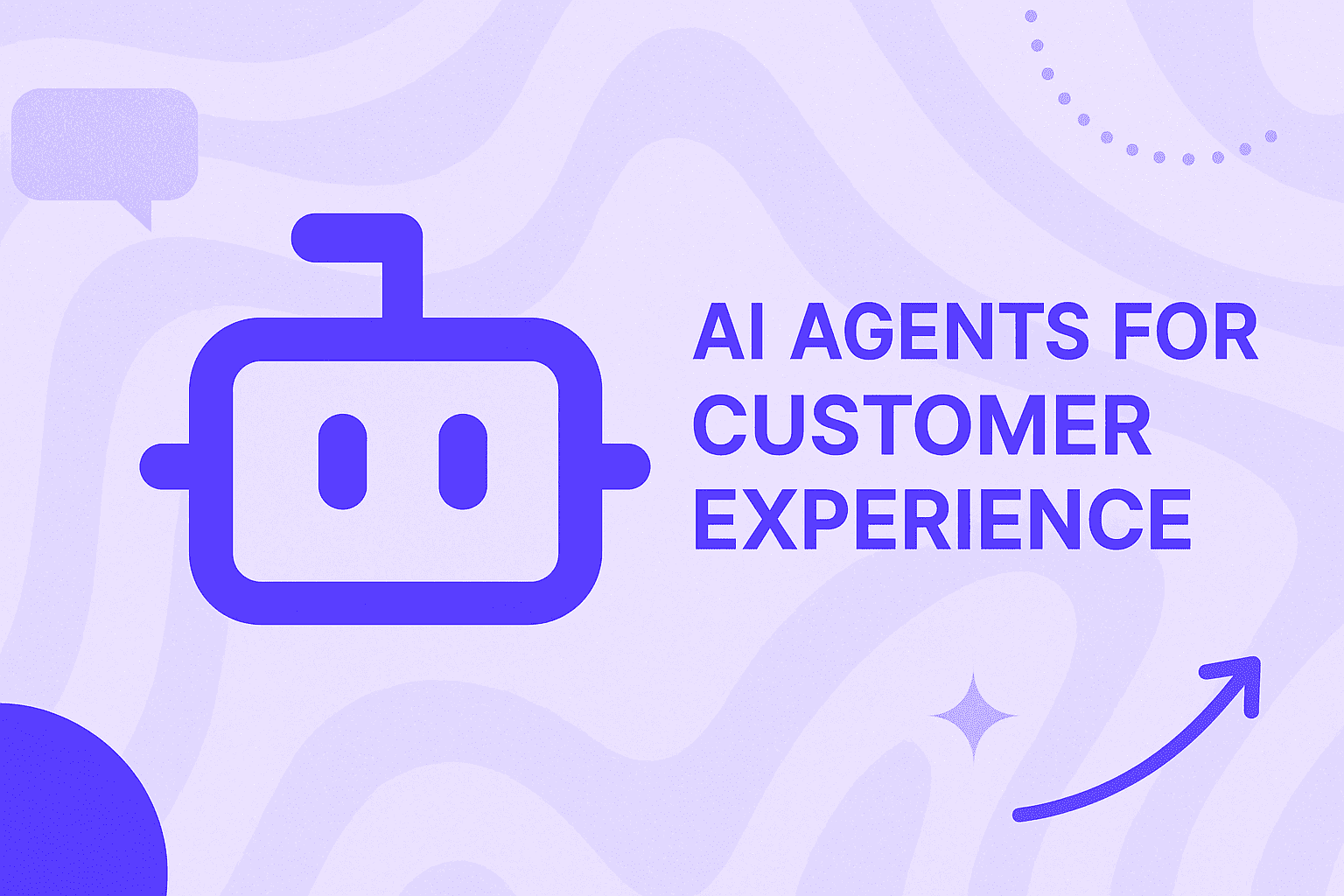AI Agents for Customer Experience: Best Practices and Use Cases

Artificial Intelligence (AI) has redefined how businesses connect with their customers. At the forefront of this transformation are AI agents for customer experience, automated systems designed to interact, support, and engage users across multiple touchpoints. From chatbots on websites to voice assistants in mobile apps, these digital agents are revolutionizing customer service, driving satisfaction, and reducing operational costs.
In this post, we’ll explore the best practices for deploying AI agents, and share key use cases where they’re making a real impact.
Why AI Agents Are a Game-Changer in Customer Experience
AI agents are more than just automated responders, they are intelligent, context-aware systems that deliver personalized, real-time support. Their ability to learn from interactions, analyze sentiment, and provide consistent responses makes them invaluable in:
- Reducing wait times
- Offering 24/7 support
- Automating routine queries
- Scaling customer service operations
As a result, businesses can meet rising customer expectations while optimizing internal resources.
Best Practices for Implementing AI Agents
To maximize the benefits of AI agents in customer experience, follow these best practices:
1. Start with Clear Objectives
Define specific goals, whether it’s reducing ticket volume, improving first response time, or increasing customer satisfaction scores. Align your AI agent’s design with these KPIs.
2. Integrate Seamlessly with Human Support
AI agents should be able to hand off complex or sensitive issues to human agents without friction. A hybrid model ensures efficiency without sacrificing empathy.
3. Personalize Interactions
Use customer data to tailor responses. AI agents can reference past interactions, preferences, or account status to make conversations more relevant.
4. Train Continuously
AI agents improve over time through machine learning. Regularly update their knowledge base with new FAQs, product info, and conversation data.
5. Maintain Transparency
Let customers know when they are speaking with an AI, and provide easy options to escalate to a human if needed.
6. Monitor Performance
Track metrics like resolution rate, CSAT scores, and AI containment rate to evaluate effectiveness and fine-tune behavior.
Real-World Use Cases of AI Agents in Customer Experience
1. E-commerce
Retailers use AI agents to guide customers through product selection, handle order tracking, and manage returns. For example, an AI chatbot can recommend items based on browsing behavior.
2. Financial Services
Banks deploy AI agents to answer account-related queries, monitor fraud, and even assist in loan applications. This improves accessibility while maintaining compliance.
3. Telecommunications
Telecom providers automate bill inquiries, service upgrades, and troubleshooting through conversational AI, significantly reducing call center load.
4. Travel and Hospitality
Travel companies use AI agents to manage bookings, provide real-time updates, and offer destination advice, enhancing the journey from planning to arrival.
5. SaaS and Tech Support
Software companies like YooBot implement AI agents to offer onboarding assistance, troubleshoot common issues, and escalate technical problems.
How YooBot Stands Out
Unlike generic chatbot platforms, Yoobot offers purpose-built AI agents tailored to your business workflows. YooBot’s intuitive interface, native integrations, and continuous learning capabilities empower teams to deliver exceptional customer experiences with minimal setup.
Final Thoughts
The future of customer experience is undeniably tied to the rise of intelligent automation. By following best practices and leveraging proven use cases, businesses can transform how they interact with their audience, delivering fast, personalized, and satisfying service at scale.
Ready to elevate your customer experience? Try YooBot’s AI agents today and see the difference intelligent automation can make.